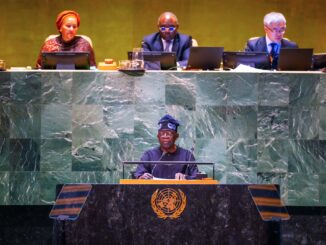
The Central Bank of Nigeria (CBN) has announced an upward review of cash withdrawal limits to N500, 000 and N5 million for individuals and corporate accounts respectively.
The apex bank also reviewed downward, the stipulated percentage cost for withdrawals above the stipulated limits.
This is according to a statement by Haruna Mustapha, CBN’s Director, Banking Supervision.
According to Mustapha, in compelling circumstances where cash withdrawals above the limits are required, they shall be subject to a processing fee of three per cent and five per cent for individuals and corporate organisations respectively.
The News Agency of Nigeria (NAN) reports that the apex bank, in a statement on Dec. 6, indicated that beginning from Jan 9, 2023, the amounts individuals and corporate organisations could withdraw per week would not exceed N100,000 and N500,000, respectively.
The decision had, however, received criticisms from a wide range of stakeholders, including members of the National Assembly, who urged the CBN Governor, Godwin Emefiele, to increase the withdrawal limits.
ALSO READ: Buhari to APC: I will campaign for Tinubu, APC Candidates with energy, conviction
The House of Representatives had also invited Emefiele to make further clarifications on the policy to its members.
Mustapha said despite the new review, customers should still be encouraged to use alternative channels like Internet banking, mobile banking apps, USSD, POS and eNaira to conduct banking transactions.
He added that bank and mobile agents were important participants in the financial system, enabling access to financial services in underserved and rural communities.
“They will continue to perform strategic functions in line with existing regulations governing their activities.
“The CBN recognises the vital role that cash plays in supporting underserved and rural communities and will ensure an inclusive approach as it implements the transition to a more cashless society,” he said.
He warned all banks and Other Financial Institutions (OFIs) that aiding and abetting the circumvention of the new policy would attract severe sanctions.
“The above directives supersede that of Dec. 6, and take effect nationwide from Jan. 9, 2023,” he said.




